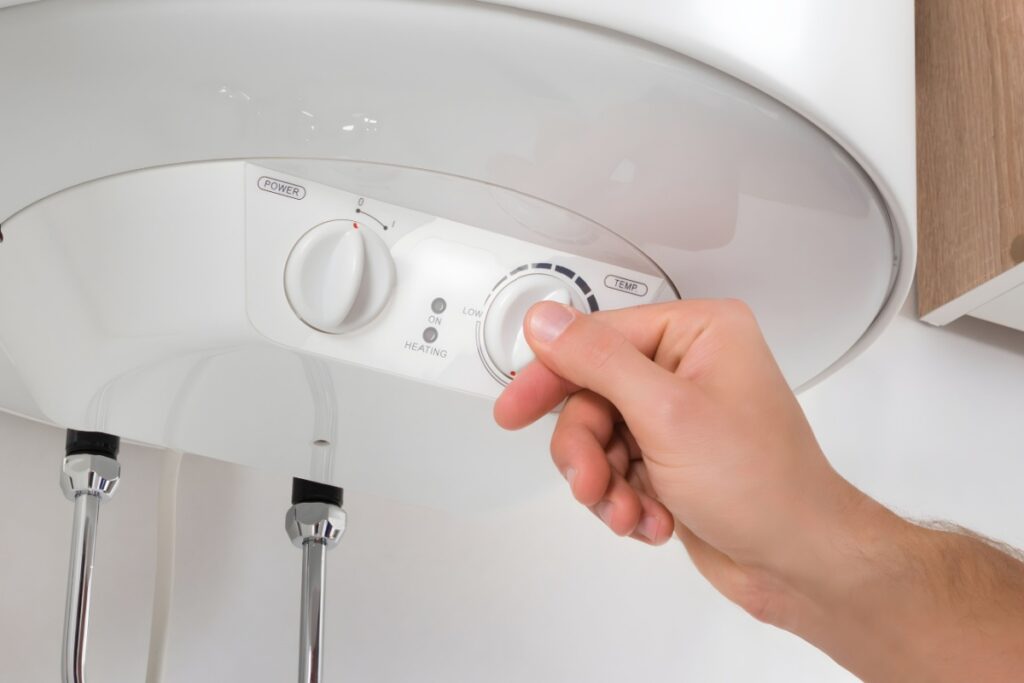Your water heater quietly powers your home, delivering the comfort of hot showers, clean dishes, and fresh laundry. It’s one of those appliances you might not think about until something goes wrong, but this powerhouse works around the clock to keep your house ideal for you. Water heaters heat and store water through a complex system of heating elements, thermostats, and valves that work together to maintain the perfect temperature.
These systems pack serious value into your home, and taking good care of them really pays off. When you give your water heater the attention it needs, you’ll dodge costly repairs and push back that eventual replacement date. Plus, proper maintenance helps your unit run more efficiently, which means lower utility bills month after month.
These practical ways to keep your water heater going strong can keep you satisfied for years to come. These tips will help you spot potential issues early and prevent any damage that can cut your unit’s life short.
Check Your Pressure Relief Valve Regularly
The pressure relief valve plays a crucial role in your water heater’s safety and longevity. This component prevents excessive pressure inside your tank by releasing water when needed. Testing it every six months keeps you ahead of potential problems. Just lift the valve’s lever and let it snap back — you should hear a gurgle as a few gallons of hot water flow into the drain tube. If you don’t see any water, or it’s just a trickle, it’s time for a replacement. A faulty pressure valve can lead to dangerous pressure buildup or tank failure.
Flush Your Tank to Remove Sediment
Sediment buildup is your water heater’s worst enemy. Over time, minerals from your water supply settle at the bottom of the tank, creating an insulating layer that makes your unit work harder than necessary. This extra strain can lead to early failure and higher energy bills. Plan to drain your tank once a year. To do so, just connect a garden hose to the drain valve and release water until it runs clear. For homes with hard water, you might need to do this more often. Adding a water softener to your system can help reduce sediment accumulation and extend your heater’s life.
Monitor and Replace Your Anode Rod
Your anode rod is a bodyguard for your water heater tank, sacrificing itself to prevent corrosion. Made of magnesium or aluminum, this rod attracts corrosive elements that would otherwise eat away at your tank’s lining. Check your anode rod every two years — sooner if you have a water softener installed. When the rod becomes less than 1/2 inch thick or coated in calcium, it’s time for a replacement. A fresh anode rod costs far less than a new water heater.
Maintain Proper Temperature Settings
Your water heater doesn’t need to be cranked up to maximum heat to do its job effectively. Setting your hot water temperature around 120 °F strikes the perfect balance between comfort and efficiency. Higher temperatures create more wear on tank components and waste energy. Take a look at your current setting, and if you see scales forming quickly around your hot water faucets or your water feels too hot to touch, try turning it down a notch.
Insulate Your Tank and Pipes
Heat loss through your tank walls and pipes makes your system work overtime. Adding an insulation blanket to your water heater (unless it’s a newer model with built-in insulation) and foam pipe covers to exposed hot water lines helps maintain consistent temperatures. This simple upgrade reduces strain on your heating elements and cuts down on energy waste. Just be careful not to cover the top of gas water heaters or block any vents.
Schedule Professional Inspections
Regular checkups catch small issues before they become big problems. A qualified plumber can spot wear patterns, test your gas line connections, and evaluate the performance of your expansion tank. They’ll also clean parts you can’t easily reach and make adjustments to optimize performance. It’s like getting a yearly physical for your water heater.
Related: Check out our plumbing service agreements for timely maintenance services on all your plumbing systems, including your water heater!
Keep the Area Around Your Heater Clear
Your water heater needs room to breathe. Keeping the space around it clear improves airflow, makes maintenance easier, and prevents accidental damage. Remove any stored items, especially flammable materials, from the area. Good airflow helps your unit operate more efficiently and allows you to spot any leaks or issues quickly.
Are You in and Around Tampa? Want to Protect Your Water Heater? Friend’s Plumbing Can Help!
A water heater is a huge investment, as you probably already know. This investment should be protected. The tips we’ve covered can help prevent common issues that lead to premature failure, and they’re definitely worth it when you consider the cost of replacement.
Need more guidance on water heater maintenance? The team at Friend’s Plumbing serves Tampa Bay area residents with professional water heater services, including getting you a brand-new water heater if yours is starting to give way. We’re ready to help you save money and keep your hot water flowing reliably for years to come. Schedule a maintenance check or learn more about getting the most from your water heater with our Tampa Bay-based plumbers!




